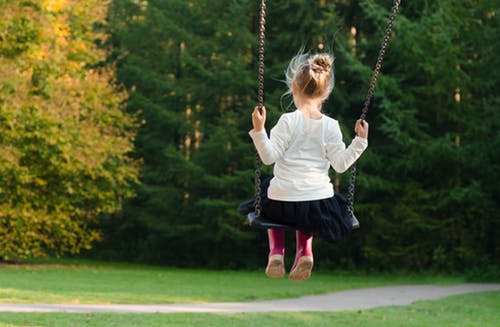Anxiety impacts the lives of many children. In fact, childhood in general can lead to excessive levels of anxiety. It involves navigating a confusing world, meeting new challenges, learning new skills, and overcoming fears. However, though there are many natural things that can cause a child to feel anxious, sometimes anxiety reaches an excessive level that requires far more effort to resolve. These methods may require therapy or other options. Approximately 1 in 8 children experiences excessive anxiety, but few of these children are able to receive appropriate treatment for extreme anxiety, which can make it more difficult to handle as adults. Here are a few of the biggest signs that your child has anxiety.
Types of Anxiety Common in Children
There are many common types of anxiety. It is important to understand what types of anxiety are the most common in children. This can help you to identify the anxiety that your child is experiencing and will help you to provide them with the appropriate care to manage their anxiety and their emotions. Keep in mind that these are simply the most common anxiety types in children and won’t necessarily cover every situation.
Generalized Anxiety Disorder
Generalized anxiety disorder is one of the most common anxiety types, especially in children. This anxiety disorder involves excessive anxiety or worry often about many different things. Generalized anxiety disorder tends to result in irritability, fatigue, difficulty concentrating, sleep disturbances, and muscle tension. If your child has these signs, it is possible that they are experiencing generalized anxiety disorder.
Separation Anxiety Disorder
Separation anxiety disorder is incredibly normal for children between the ages of 1 and 3. Though there are many possible methods for handling separation anxiety disorder, it is important to pay attention to when the symptoms are extremely persistent and excessive. This often indicates that additional help is needed.
Selective Mutism
Selective mutism occurs when the child refuses to speak in certain social situations. This tends to be seen most commonly in children around the age of 5. In many situations, these children are talkative at home, when they are in a comfortable environment, but won’t speak in school or other less familiar locations. This can lead to them actively trying to avoid school and drawing back from classmates.
Specific Phobia
Specific phobias are a type of anxiety disorder that results as an extreme fear of one specific thing. These can include things such as heights, water, spiders, or other common phobias. The child will often seem inconsolable when in the presence of their phobia, which can lead to many additional issues.
Panic Disorder
Panic disorder is an anxiety disorder that results in panic attacks. In general, panic attacks are characterized by shortness of breath, pain in the chest, nausea, a sensation of choking, chill or heat sensations, dizziness, and a fear of going crazy or dying. If your child complains about these sensations, it is possible that they are experiencing panic attacks and may be diagnosed with panic disorder.
Social Anxiety Disorder

Social anxiety disorder is a kind of anxiety that is associated with social interactions. Children with social anxiety disorder often avoid social gatherings and may even be resistant to attending school. Children with social anxiety disorder may have difficulty communicating with and forming relationships with other people their age.
Signs that your Child Has Anxiety
Understanding the various signs that your child has anxiety can go a long way toward identifying it when it is present. This can help you to obtain the appropriate treatment that your child needs. When a child has anxiety they may exhibit:
- Difficulty concentrating
- Not sleeping
- Waking up in the middle of the night with nightmares
- Not eating properly
- Easily becoming angry or irritable
- Tense feelings
- Extreme fidgeting
- Constantly worrying or having negative thoughts
- Clinginess
- Consistent crying
- Complaining of tummy aches
- Resisting going to school
- Having emotional meltdowns after school
If your child exhibits these symptoms, it is likely that they have anxiety. You may want to consider consulting with a mental health professional to help your child handle their anxiety.
Causes of Anxiety
There are many causes of anxiety, in addition to the many various types of anxiety. Genetics are often a huge factor in the development of anxiety. A child with family members who have anxiety is more likely to develop anxiety. Additionally, anxiety can simply be a matter of the brain’s chemistry. The way in which the brain functions can cause anxiety to develop. Life situations can also lead to anxiety, including things like traumatic experiences, moving often, a divorce, or many other events. In addition, anxiety may be a learned behavior that arises from seeing how others in their life handle their own emotions. There is no singular cause for anxiety, but identifying the cause of the anxiety may help to determine the ideal treatment.
How to Help your Child
If you suspect that your child is experiencing high levels of anxiety, it is likely that you feel helpless and want to help them. An important component of helping a child with anxiety is ensuring that you talk to them regarding their own worries and anxiety. Simply having someone to discuss their concerns with can help to provide them with some reassurance. However, you may also want to consult with a doctor or a therapist for specific recommendations. Therapy can go a long way toward teaching your child how to healthily handle their emotions, fears, and anxieties.
Ensuring that your child has a steady routine can go a long way toward helping them handle unexpected occurrences or substantial anxiety. A great way to provide a healthy, beneficial routine for your child is to enroll them in preschool. This can help to provide them with valuable learning opportunities and the ability to interact with other people their same age. At Corner Canyon Academy, we are dedicated to offering superior preschool services to help your child get a head start. To learn more about how preschool can benefit your children, contact our experts at Corner Canyon Academy today!


Leave a Reply